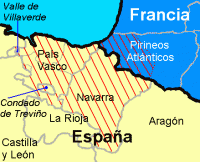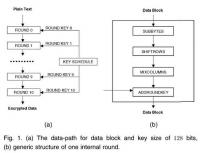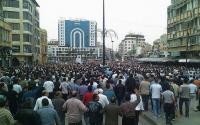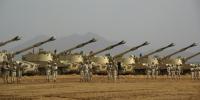-
World powers agree on “full cessation of hostilities” in Syria within 1 week
Major world powers have agreed to a deal which would end hostilities in Syria and allow for the delivery of humanitarian aid to civilians. Secretary of State John Kerry and Russian Foreign Minister Sergei Lavrov, meeting in Munich, early Friday announced the agreement, calling for a broader ceasefire. The agreement raises hopes that a diplomatic breakthrough may be possible.
-
-
DNA of Paris attacks’ mastermind not on discarded suicide vest
French police found no DNA traces of Salah Abdeslam, the fugitive terror suspect who helped mastermind the 13 November Paris attacks, on a suicide belt they thought he discarded in Paris. Another unidentified DNA found on two vests could be that of the bomb maker.
-
-
NYPD has used Stingrays since 2008 -- with lower-level court orders rather than warrants
The NYPD has confirmed that it owns and operates Stingrays— surveillance devices that spy on cell phones nearby and which can be used to track location. In response to an NYCLU FOIL request, the NYPD disclosed it used Stingrays nearly 1,016 times between 2008 and May of 2015 without a written policy and following a practice of obtaining only lower-level court orders rather than warrants. This is the first time the extent of the use of Stingrays by the NYPD has been made public.
-
-
“Palestine” does not exist “because [Arabs] can't pronounce the letter ‘P’': Israeli MP
Israeli politicians who oppose the creation of an independent Palestinian state have found a new argument to support their position: The fact the Arabic does not have the letter “P.” Linguists and Middle East scholars expressed surprise at this line of argument, noting that in Arabic, the name of the people – and their country – begin with the letter “F,” not “P.” In Arabic, “Palestine” is pronounced “Falastin.”
-
-
Spanish judge frees puppeteers jailed for glorifying Basque terrorism

A judge has freed two Spanish puppeteers who were jailed Saturday for glorifying terrorism after they staged a violent puppet show which made references to Basque militant group ETA. ETA has killed more than 800 people since it launched its campaign in the early 1980s to establish a Basque state in northern Spain and southern France.
-
-
Encryption prevents FBI from cracking San Bernardino attackers’ phone

U.S. law enforcement agencies have been unable to access a telephone used by the two Islamist attackers in the San Bernardino shooting, FBI director James Comey said Tuesday. Comey stressed that the post-Snowden end-to-end encryption some technology companies are now offering their customers make it impossible for law enforcement to learn more about terrorists and criminal networks, even after terrorist or criminal acts have been committed and even if a court has approved access to the information.
-
-
Intelligence agencies could use Internet-of-things to spy on people

James Clapper, the director of U.S. national intelligence, told lawmakers the other day that the Internet of things — baby monitors, TV set, home security devices, voice recognition dolls – may be used by intelligence services to spy on people. Clapper, testifying yesterday before a Senate panel, said that intelligence agencies might be able to use this new generation of household devices to increase their surveillance capabilities.
-
-
Chechen special forces on the ground in Syria, infiltrated ISIS ranks: Chechen leader

Chechen leader Ramzan Kadyrov said that Chechen Special Forces loyal to Vladimir Putin are on the ground in Syria, operating in ISIS-controlled territory. He claimed that the operation is part of a Russian-led intelligence-gathering mission. The Kremlin refused to confirm or deny Kadyrov’s claims, but the fact that Kadyrov, a self-described “foot soldier for Putin,” made them offers evidence of disagreements in Russia over the Syria strategy and suggests Kadyrov is seeking a greater role for Chechnya in regional affairs.
-
-
Nearly 300,000 UAV owners register with the FAA
Nearly 300,000 owners have registered their small unmanned aircraft in the first thirty days after the Federal Aviation Administration’s (FAA) online registration system went live. Owners who registered in the first month received a refund for the $5 application fee.
-
-
Ending civilian use of highly enriched, weapon-grade uranium
Efforts to convert civilian research reactors from weapon-grade highly enriched uranium (HEU) to low enriched uranium (LEU) fuels are taking significantly longer than anticipated, says a report from the National Academies of Sciences. The report calls for the federal government to take immediate steps to convert civilian research reactors currently using weapon-grade HEU fuel to a lower-enriched HEU fuel while awaiting the qualification of new LEU fuel.
-
-
Assad regime has committed crimes against humanity, war crimes, acts of “extermination”: UN

In a report issued earlier today (Monday), the UN Human Rights Council has accused the regime of President Bashar al-Assad of actions which amount to “extermination.” “The government has committed the crimes against humanity of extermination, murder, rape or other forms of sexual violence, torture, imprisonment, enforced disappearance, and other inhuman acts,” the UN report says. “Based on the same conduct, war crimes have also been committed.”
-
-
Doubts cast on Continuity IRA's claims of responsibility for Friday’s gang member shooting

Irish security sources have expressed their doubts over a claim by the Continuity IRA that it had carried out the attack on a boxing weigh-in at a Dublin hotel on Friday. Gang member David Byrne was shot dead and two others were injured in the carefully planned attack at the Regency hotel. The attack was carried out by six gunmen, one dressed as a woman.
-
-
Battle casualties, desertions reduce ISIS ranks by 20%: U.S.

A U.S. intelligence report, cited yesterday by a White House spokesman, says that the number of ISIS fighters in Syria and Iraq has fallen from about 31,000 to 25,000. Senior U.S. officials point to battlefield casualties and desertions as the main reasons for the roughly 20 percent decline, adding that the intelligence report offers evidence that the U.S.-led campaign, which relies mostly on air attacks on ISIS targets, was working.
-
-
F-15s to protect skies over Super Bowl 50

U.S. Air Force planes will be protecting the skies over the Super Bowl this weekend. Civil Air Patrol National Commander Maj. Gen. Joe Vazquez said F-15 Eagles from the Air National Guard will be on the ready to escort any unidentified aircraft from the area.
-
-
Saudi Arabia to send ground troops to Syria

Saudi Arabia said it was ready to send ground troops to Syria to fight ISIS. Saudi sources added that thousands of Saudi Special Forces could be deployed, probably in coordination with Turkey. Saudi gains in the war against pro-Iranian rebels in Yemen have freed Saudi resources to be directed to Syria, and the fact that Russia and the Assad regime focus their military effort on fighting the moderate rebels means that these rebels need more outside help to withstand the pressure both from ISIS and the Syrian regime and its allies.
-
More headlines
The long view
What Does Netflix’s Drama “Adolescence” Tell Us About Incels and the Manosphere?
While Netflix’s psychological crime drama ‘Adolescence’ is a work of fiction, its themes offer insight into the very real and troubling rise of the incel and manosphere culture online.
A Shining Star in a Contentious Legacy: Could Marty Makary Be the Saving Grace of a Divisive Presidency?
While much of the Trump administration has sparked controversy, the FDA’s consumer-first reforms may be remembered as its brightest legacy. From AI-driven drug reviews to bans on artificial dyes, the FDA’s agenda resonates with the public in ways few Trump-era policies have.
The Center Can Hold — States’ Rights and Local Privilege in a Climate of Federal Overreach
As American institutions weather the storms of executive disruption, legal ambiguity, and polarized governance, we must reexamine what it means for “the center” to hold.
How to Reverse Nation’s Declining Birth Rate
Health experts urge policies that buoy families: lower living costs, affordable childcare, help for older parents who want more kids
Foundation for U.S. Breakthroughs Feels Shakier to Researchers
With each dollar of its grants, the National Institutes of Health —the world’s largest funder of biomedical research —generates, on average, $2.56 worth of economic activity across all 50 states. NIH grants also support more than 400,000 U.S. jobs, and have been a central force in establishing the country’s dominance in medical research. Waves of funding cuts and grant terminations under the second Trump administration are a threat to the U.S. status as driver of scientific progress, and to the nation’s economy.
The True Cost of Abandoning Science
“We now face a choice: to remain at the vanguard of scientific inquiry through sound investment, or to cede our leadership and watch others answer the big questions that have confounded humanity for millennia —and reap the rewards.”
